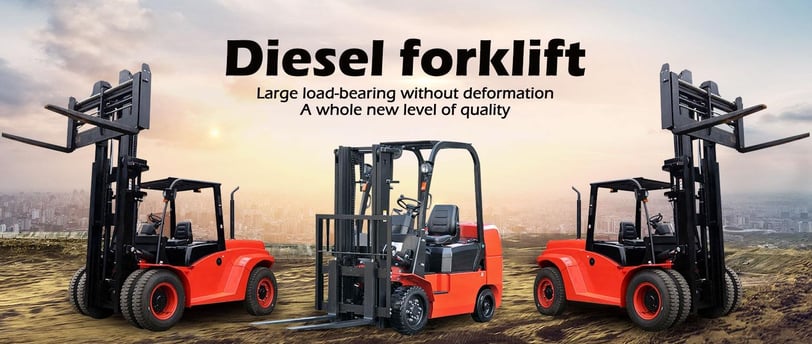Key Factors to Consider When Buying a Used Forklift Truck
Key Factors to Consider When Buying a Used Forklift Truck


Title: Key Factors to Consider When Buying a Used Forklift Truck
Are you considering purchasing a used forklift truck for your business operations? Investing in a pre-owned forklift can be a cost-effective solution, but it's crucial to make an informed decision to ensure safety, reliability, and efficiency. Here are some key factors to consider when buying a used forklift truck:
1. Equipment Condition: The condition of the forklift is paramount. Inspect the truck thoroughly for any signs of wear and tear, including engine performance, hydraulic system functionality, mast operation, brakes, tires, and overall structural integrity. A comprehensive inspection by a qualified technician can uncover hidden issues and prevent future headaches.
2. Maintenance History: Request maintenance records and service logs from the previous owner or dealer. A well-maintained forklift with a documented service history is likely to have fewer mechanical problems and a longer lifespan. Look for regular maintenance intervals, including oil changes, filter replacements, and scheduled inspections.
3. Usage Intensity: Determine the forklift's usage history and operational environment. Heavy-duty applications, such as construction sites or warehouses with high throughput, may result in accelerated wear and tear compared to light-duty usage. Understanding the previous workload can help assess the forklift's remaining lifespan and potential maintenance needs.
4. Age and Hours of Operation: Consider the age of the forklift and its total hours of operation. While newer models may command a higher price, they often come with advanced features, improved efficiency, and lower maintenance requirements. Older forklifts with high hours may require more frequent repairs and parts replacement.
5. Manufacturer Reputation: Research the reputation of the forklift manufacturer and model. Established brands with a track record of reliability, durability, and aftermarket support are preferable choices. Reading customer reviews and seeking recommendations from industry peers can provide valuable insights into the forklift's performance and longevity.
6. Safety Features: Prioritize safety features to protect operators, pedestrians, and warehouse assets. Look for forklifts equipped with features such as seat belts, overhead guards, reverse alarms, and emergency stop buttons. Safety should always be a top priority when selecting a used forklift truck.
7. Warranty and Support: Inquire about available warranties and aftermarket support options. Some dealers may offer limited warranties or service agreements for used forklifts, providing added peace of mind and protection against unexpected repair costs. Evaluate the dealer's reputation, responsiveness, and availability of spare parts.
8. Training and Certification: Ensure that operators are properly trained and certified to operate the selected forklift model. Proper training reduces the risk of accidents, improves productivity, and prolongs equipment lifespan. Invest in operator training programs to maximize safety and efficiency in your workplace.
In conclusion, buying a used forklift truck requires careful consideration of various factors to ensure a smart investment. By assessing the equipment condition, maintenance history, usage intensity, age, manufacturer reputation, safety features, warranty, and operator training, you can make an informed decision that meets your business needs and budget constraints. Prioritize safety, reliability, and efficiency to enhance productivity and profitability in your operations.
